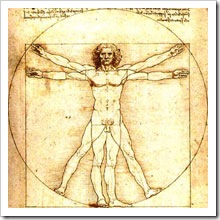The originator of the theory of multiple intelligences, Howard Gardner, a professor of education at Harvard University, defines intelligence as the potential ability to process a certain sort of information. The different types of intelligence are for the most part independent of one another, and no type is more important than the other.
In all, Gardner identifies seven different types of intelligence. These can be summarised as follows:
1. Verbal = linguistic, e.g. lexical skills, formal speech, verbal debate, creative writing.
2. Body = kinesthetic (movement), e.g. body language, physical gestures, creative dance, physical exercise, drama.
3. Musical = rhythmic, e.g. music performance, singing, musical composition, rhythmic patterns.
4. Logic = mathematic, e.g. numerical aptitude, problem solving, deciphering codes, abstract symbols and formulae.
5. Visual = spatial, e.g. patterns and designs, painting, drawing, active imagination, sculpture, colour schemes.
6. Interpersonal (relationships with others), e.g. person-to-person communication, empathy practices, group projects, collaboration skills, receiving and giving feedback.
7. Intrapersonal (self-understanding and insight), e.g. thinking strategies, emotional processing, knowing yourself, higher order reasoning, focusing=concentration.
Form the book “THE COMPLETE BOOK OF INTELLIGENCE TESTS” by Philip Carter, Published by John Wiley & Sons Ltd 2005.
Opinion:
I remember running into this a few years ago, I was very intrigued at it’s premise. I have long suspected that the classic IQ test is inadequate – I have certain friends that are brilliant with their hands, or amazing musicians, yet the classic IQ test rates them as not-so-intelligent.
I assert; that the classic IQ test is a dangerous touchstone because of it’s authoritative position in society – some people score well and can erroneously conclude that they are of superior intelligence (which is a classic characteristic of incompetence), yet other people may score low on the test and internalise an inferior sense of competence.
I favour Howard Gardner’s proposal, as it accounts for relevant variables that the class IQ Test dismisses.


